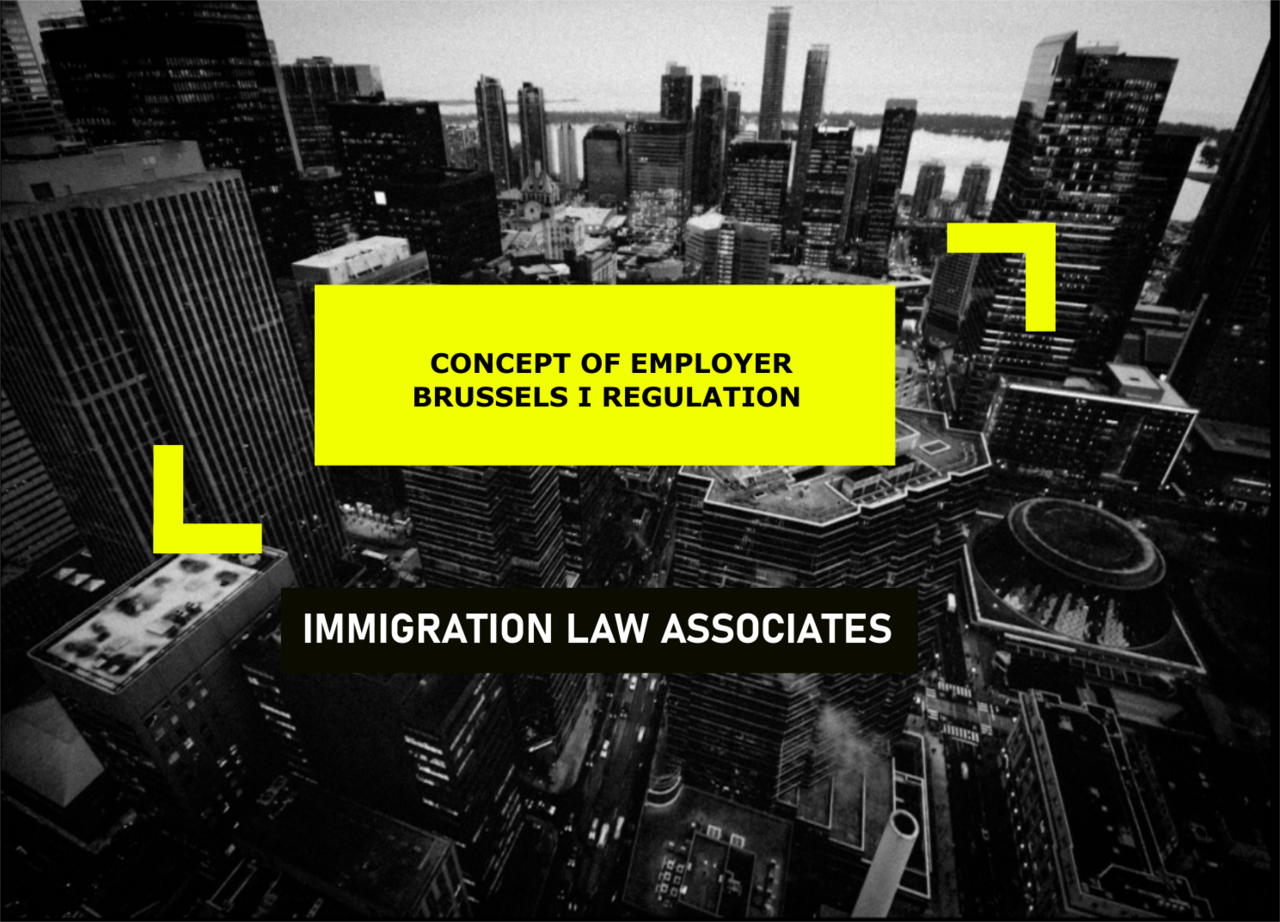Concept of employer- third party having interest in the performance of an employment contract

An employment relationship is characterised by the fact that for a certain period of time, a person performs services for and under the direction of another person, in return for which he receives remuneration.
The existence of a subordination link is intrinsic to the existence of an employment relationship.
Subordination link triggers exercise of authority.
Authority can be exercised in various forms, and consequently determining the person under whose direction services are performed, might be a laborious task.
Moreover, beyond a consensus as regards a factual determination of the existence of an employment relationship, the concept of employer is yet to be given an autonomous and uniform interpretation throughout the EU (without prejudice to the ECJ landmark judgment in AFMB).
One of the questions referred to the ECJ by the Bundesarbeitsgericht (Federal Labour Court of Germany) in ROI Land Investments LTD (C-604/20) is whether Article 21(1)(b)(i) and (2) of Regulation 1215/2012 (‘Brussels I Regulation’), “must be interpreted as meaning that an employee may bring proceedings before the court of the last place from which he habitually worked against a person who is not domiciled in a Member State, with whom he is not bound by a contract of employment, but who is, by virtue of a guarantee agreement on which the conclusion of that contract depended, directly responsible for the performance of the employer's obligations to that employee” (Opinion delivered by AG Richard de la Tour on 28 April 2022, paragraph 39).
The case in the main proceedings
The case in the main proceedings is concerned with a transfer of a contractual relationship (service agreement) concluded by a German national with a company located in Canada, to a newly established Swiss company, subsidiary of the Canadian company. The transfer was materialised by the conclusion of an employment contract with the Swiss company for a position of director, and a “letter of comfort” by which the Canadian company undertakes full responsibility for the fulfilment of the obligations relating to the contracts of the Swiss company based on the cooperation of its director with the latter company. Several months after the conclusion of a second employment contract offering a higher starting bonus, the Swiss company notified the German national that the contract of employment was to be terminated.
The Stuttgart Labour Court found that the termination was of no effect and ordered the Swiss company to pay the starting bonus and the remuneration due. The Swiss company did not discharge its payment obligation.
Bankruptcy proceedings were opened in respect of the assets of the Swiss company under Swiss law, and the employee brought proceedings before the Stuttgart Labour Court, against the Canadian company, based on the letter of comfort signed by the parties.
The Opinion delivered by AG Richard de la Tour
The AG is looking into whether the Canadian company is deemed to be an employer in the meaning of Article 21 Regulation 1215/2012, despite of the fact that:
- there is no individual employment contract concluded between the employee and the Canadian company
- factually, no subordination link was established between the Canadian company and the employee
The AG observes that “the particular circumstances of the case in the main proceedings demonstrate once again the singularity of the concept of 'employer' within a group of companies and the risk of considering, in the light of the usual criteria, that in all circumstances a single link must be established between an employee and an employer, the latter being the person on behalf of whom that employee performs his duties, the person who exercises a power of direction and the person who pays that employee remuneration or any other compensation” (paragraph 49).
Important observation, moreover, multiple links can be determined beyond the specific case of “group of companies”.
To support the existence of a de facto employment relationship with the Canadian company, the AG brings several arguments:
- the letter of comfort represents an integral part of the employment contract (without which the employee would not have been concluded the said contract)
- the undertaking was made without any condition of default by the Swiss employer
- the undertaking relates to an essential element of the employment relationship, notably the remuneration
- in the context of the employment relationship, the employee was obliged to perform the same work as he had previously done for the Canadian company
- the context in which the undertaking was made
The last argument might be the one will balance the court decision.
Referring to the ECJ judgment in Pugliese (10 April 2003, C-437/00, EU:C:2003:219), the AG invokes the concept of “interest of a third party in the performance of an employment contract”.
That concept forms an integral part of the doctrine of “factual performance”.
The AG suggests setting a limit to that criterion: the interest of the third party must be direct.
To that extent, the AG recalls the non-exhaustive list of criteria from Pugliese, and supplements that list:
- the fact that the conclusion of the second contract was envisaged when the first was being concluded
- the fact that the first contract was amended on account of the conclusion of the second contract
- the fact that there is an organisational or economic link between the two employers
- the fact that there is an agreement between the two employers providing a framework for the coexistence of the two contracts
- the fact that the first employer retains management powers in respect of the employee
- the fact that the first employer is able to decide the duration of the employee's work for the second employer
- the fact that the third party is contractually responsible for the performance of the obligations of the contractual employer, especially at the request of the employee, without any limitation
- the fact that the nature of the employee's tasks, which he had performed during a previous contract under the direction of the third party, remains unchanged after the conclusion of the new contract
- the fact that the employee, despite the termination of the previous contract, remains obliged to carry out his activities for the third party
AG Richard de la Tour concluded that “a natural or legal person, whether or not domiciled in the territory of a Member State, may be regarded as an 'employer' within the meaning of Article 21(1) and (2) of Regulation No 1215/2012, with whom the employee has not concluded an employment contract, but an agreement forming an integral part of that contract under which that person is responsible for the performance of the employer's obligations towards that employee, if that person has a direct interest in the proper performance of that contract”(paragraph 68).
Remarks in the margin of the Opinion delivered by the AG
The concept of interest of a third party in the performance of an employment contract can be applied to one of the triangular employment relationship scenarios, notably employment of record.
A significant number of employers using such services are not domiciled in the EU. Master service agreements are often concluded under third-countries law.
A letter of comfort as an integral part of an employment contract/transfer agreement, under the law of the country in whose territory the employee habitually works, would address possible situations in which the remuneration is at risk (e.g., early termination of a master service agreement giving rise to a litigation between the employer and the EOR).
Moreover, although rare cases, even if a part of the authority normally exercised by the employer will be transferred to the EOR, and the latter will be deemed to be “the employer”, the company on behalf of which the EOR hired the employee, will be deemed employer in the capacity of third-party having interest in the performance of the employment contract.





Please sign in or register for FREE
Sign in OR sign up to become a registered The Forum for Expatriate Management website user
Subscribe here